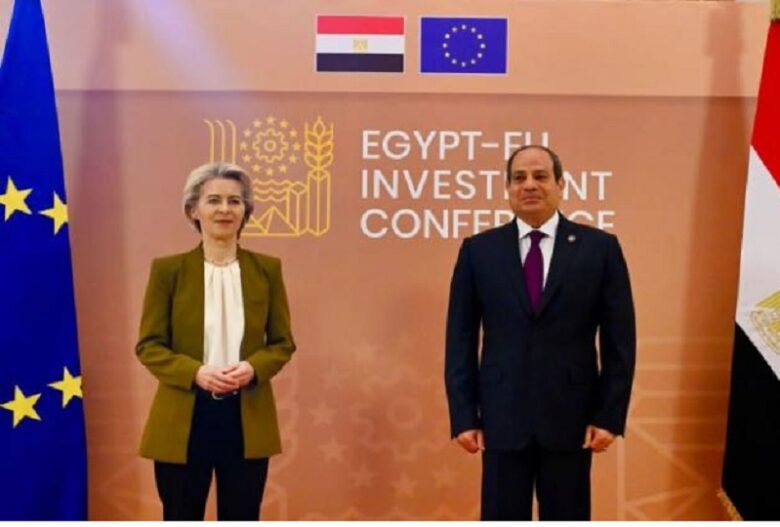The funds will be invested in sectors such as clean energy, manufacturing, and food security, according to the commission.
The agreement was signed by EU Trade Commissioner Valdis Dombrovskis and Egyptian Minister of International Cooperation Rania al-Mashat at an EU-Egypt investment conference in Cairo.
The conference, held on Saturday and Sunday, aims to promote ventures in Egypt by European businesses. Von der Leyen addressed the conference, praising the strengthened ties with Egypt.
“Today, Egypt and Europe are closer than ever before, so this is a true win-win partnership for Egypt and for Europe alike,” she said.
Von der Leyen stated that the funds will “accompany and incentivize Egypt’s reform agenda.” She added, “These reforms will foster a stronger business environment, attract more investment, and create more good jobs in Egypt.”
Egyptian President Abdel Fattah al-Sissi also spoke at the conference, saying, “This conference marks the first implementation steps in the course of elevating the relations and reflects the commitment of Egypt and the EU to go beyond the phase of pledges to the phase of implementation.”
He added, “The convening of this conference comes at a very delicate time amid successive international and regional crises. Egypt has proven to be a reliable partner in facing joint challenges in a way that achieves security and stability.”
Egypt, which hosts an estimated 9 million refugees and migrants, has been impacted by the months-long Israel-Hamas war in the neighboring Gaza Strip.
With a population of approximately 105 million people, Egypt has been facing an economic crisis, characterised by a foreign currency shortage and high inflation rates.
In an effort to stabilise the economy, Egypt announced in March that the value of its weak currency would be determined by market forces moving forward. This decision to float the Egyptian pound led to further devaluation.
On Saturday, al-Sissi, who has been in power since 2014, affirmed that Egypt is making “steady and rapid progress” towards building a more sustainable economy.
YOU MAY ALSO READ: Togo orders COVID testing for returning Hajj pilgrims after deaths









Got a Question?
Find us on Socials or Contact us and we’ll get back to you as soon as possible.